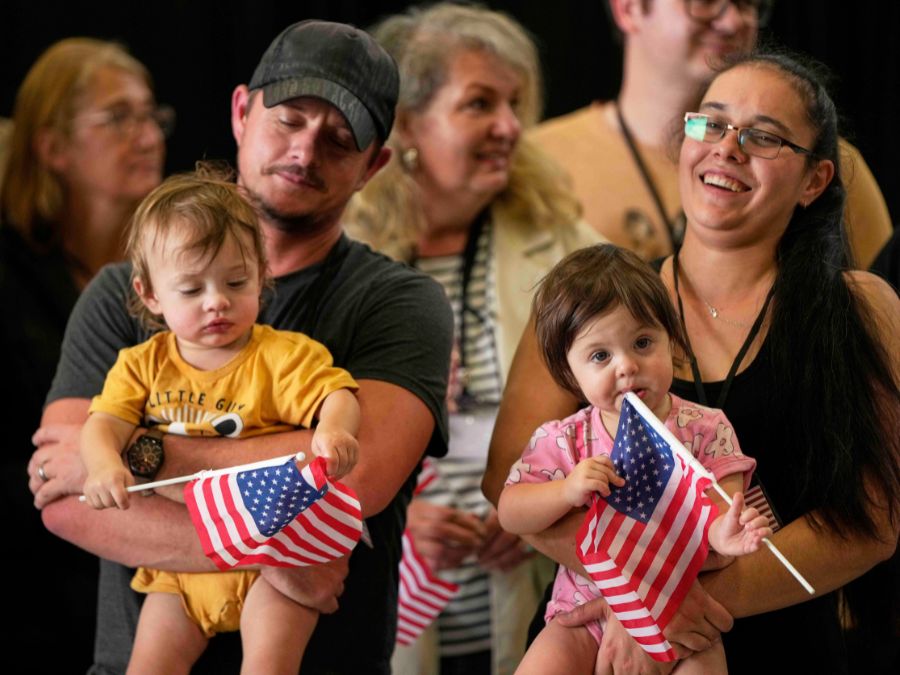On Monday, the Episcopal Church in the United States announced that it will no longer resettle refugees on behalf of the federal government, citing moral objections to President Donald Trump’s executive order prioritizing white South African refugees.
“In light of our church’s steadfast commitment to racial justice and reconciliation and our historic ties with the Anglican Church of Southern Africa, we are not able to take this step,” the Most Rev. Sean Rowe, the church’s presiding bishop, stated in a letter to members. “It has been painful to watch one group of refugees, selected in a highly unusual manner, receive preferential treatment over many others who have been waiting in refugee camps or dangerous conditions for years.”
You may unsubscribe from any of our newsletters at any time.
When he assumed office in January, Trump temporarily paused the U.S. Refugee Admissions Program. Despite the halt on all other admissions, including Afghans who worked with the U.S. military and now face persecution, the U.S. president mandated that Afrikaners’ applications be prioritized. After receiving news that the Episcopal Church would be expected to resettle some of the arriving refugees, who are mainly descendants of Dutch colonists, the church refused to do so. On May 12, Rowe announced that the church will terminate its four-decades-long partnership with the federal government by the end of the fiscal year in September.
“As Christians, we must be guided not by political vagaries, but by the sure and certain knowledge that the kingdom of God is revealed to us in the struggles of those on the margins,” Rowe explained in the letter. “Right now, what that means is ending our participation in the federal government’s refugee resettlement program and investing our resources in serving migrants in other ways.”
The Episcopal Church has participated in resettlement programs since the U.S. Congress passed the Refugee Act in 1980, even creating its own Episcopal Migration Ministries (EMM) as a separate agency in 1988. EMM says it has served over 100,000 refugees since its inception and has received more than $50 million in annual federal grants in recent years.
More on Broadview:
- Whose Christianity does Trump want to protect?
- U.S. minister eyeing Canada move: ‘I can’t allow my grandson to be on the back of the bus’
- 3 mental health experts on how to manage Trump-era stress
The administration’s decision to expedite access to refugee status for Afrikaners, a subset of white South Africans, many of whom are farmers, stemmed from Trump describing the group as victims of “genocide” post-apartheid. Although white South Africans are a minority in the country, whose population is 81 percent Black, South African President Cyril Ramaphosa has disputed Trump’s accusations that the nation’s recently adopted Expropriation Act, which aims to reverse apartheid-era land ownership disparities, amounts to discrimination. A 2024 study revealed that the typical Black household in South Africa owns only five percent of the wealth held by its white counterparts, and police data indicates that Trump’s claims of farmer murders in the country are exaggerated.
In a statement to the Episcopal Diocese of Newark, N.J., that she shared with Broadview, Bishop of Newark Carlye J. Hughes echoed doubts over the classification of Afrikaners as refugees and extended gratitude to Rowe for his “courageous decision.”
“Over 25 years ago I participated in my parish’s mission trip to South Africa shortly after the Truth and Reconciliation Commission issued their report in 1998. During the two weeks of that trip, I developed a practical understanding of the destruction caused by apartheid, an extreme form of segregation promoted by white Afrikaners, and enforced by law,” Hughes wrote. “I am thankful for his courage and completely support this action. Our hearts, prayers, and ministry remain focused on the least among us. (Matthew 25:4)”
In response to the denomination’s decision, which was announced the same day as the first flight of Afrikaners landed in the United States, White House spokesperson Anna Kelly reiterated Trump’s statements about the horrors Afrikaners face back home. In a statement to Religion News Service, Kelly said the Episcopal Church’s decision “raises serious questions about its supposed commitment to humanitarian aid,” and added that “President Trump has made it clear: refugee resettlement should be about need, not politics.”
The church’s announcement was not entirely unanticipated. Since the president suspended refugee programs after taking office, EMM laid off 22 employees and was under pressure to wind down its operations as one of the 10 agencies with federal contracts for refugee resettlement. Despite concluding its resettlement contracts with the federal government, the denomination has emphasized its commitment to serving refugees who have already arrived in the United States and expressed that it will demonstrate its support for immigrants and refugees in other ways.
“I have said before that no change in political fortunes alters our commitment to stand with the world’s most vulnerable people, and I want to reaffirm that promise,” Rowe wrote.
***
Ghazal Azizi is an intern at Broadview.













